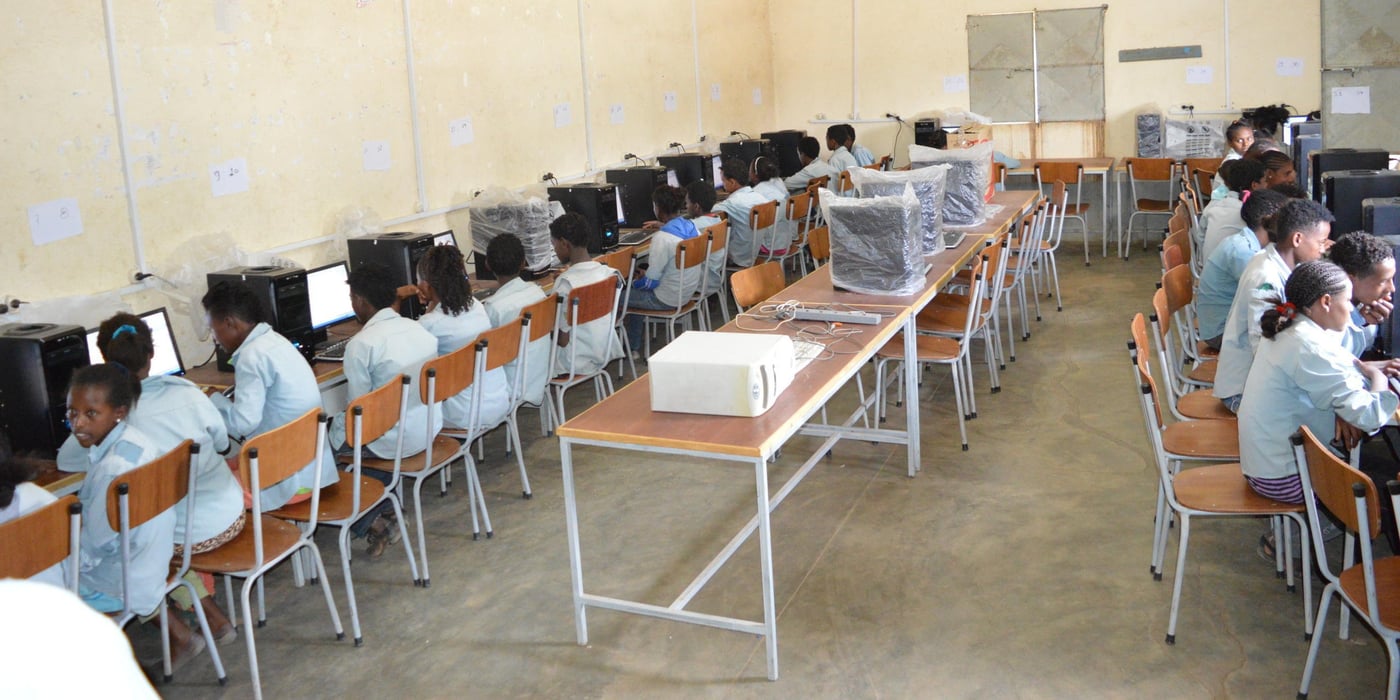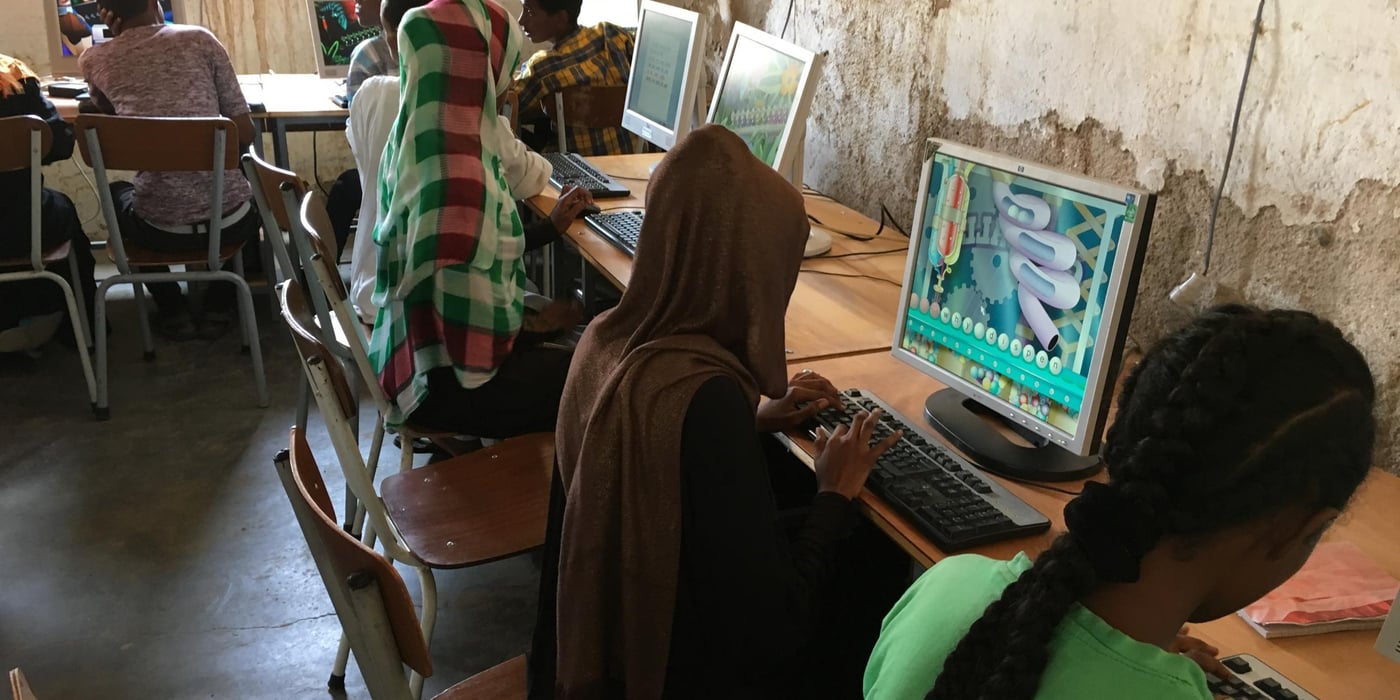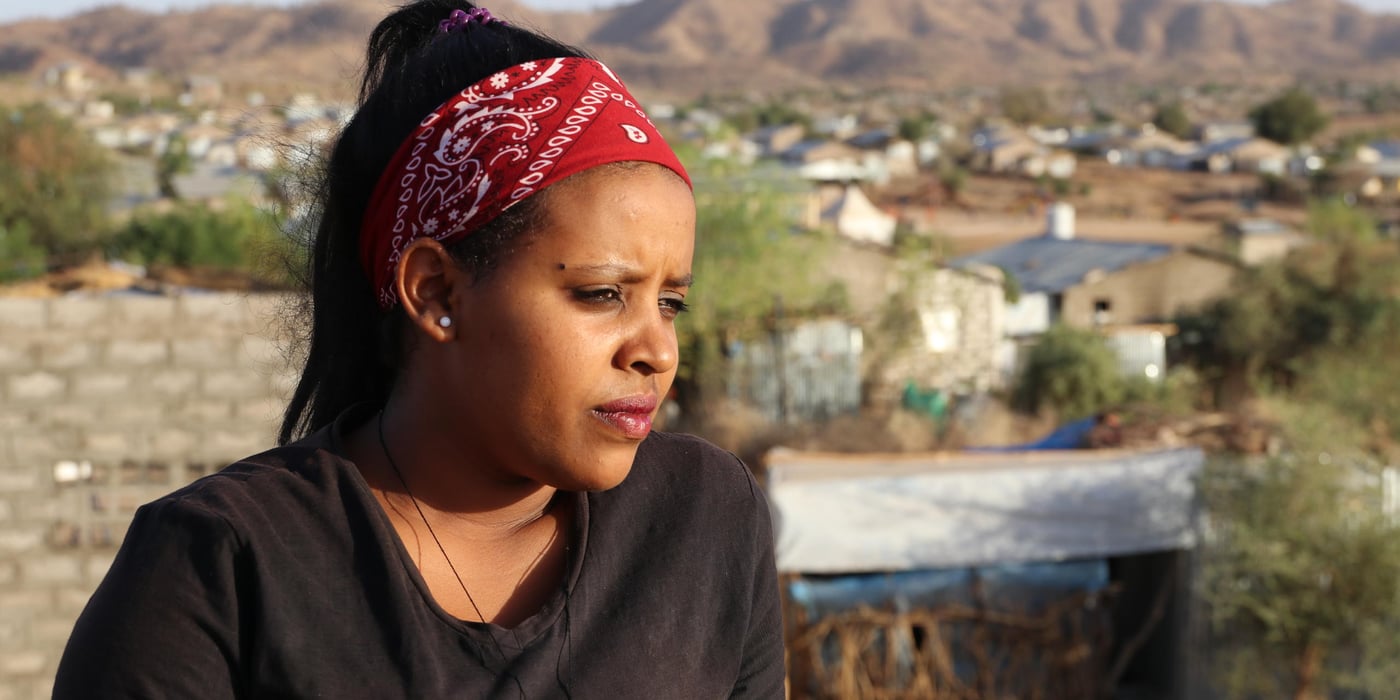
One year after launching the project, it continues to serve as a source of pride to students and teachers, as well as a lesson on innovation for humanitarian agencies and government partners. Maintenance work on the solar-powered system is regularly conducted and the ICT laboratory is functioning well, stocked with 30 desktop computers.
Yosan Kidane is one of the Grade 8 students at Kudorbror elementary school in Debub region, locally known as Zoba. The school has a capacity of over 1500 students and is among the beneficiaries of the solar power project.
“The Solar energy project has transformed Kudorbror Elementary School and enhanced students’ ICT knowledge. I have learnt how to type using the keyboard and using basic computer programmes like Microsoft Word”, says Yosan.
Coming from a large family of nine, she has become the star of the family and envy of her younger siblings on account of her computer studies.“Due to reliable power supply, teachers are able to develop their work-plans from computers. Thanks to the reliable power supply, we can also watch television and get information from local and international news channels”, she adds.
The installation is making use of the abundant sunlight that shines down on Eritrea every day, to generate power. The solar energy components in use include solar panels, inverters, chargers and other accessories assembled to operate a photo-voltaic system with a capacity of 10 to 15 Kilovolt-ampere (Kva).
The electrical output is channeled to the Information, Communication and Technology departments and for lighting classrooms and the library. A care and maintenance technician from the school and one from the Education Ministry in Asmara have been trained and continue to provide support whenever it is required.
“I am excited about the solar power lighting project. It has given me an opportunity to pursue my education. I have a dream to help my family and contribute to the development of my community and country”, says another student from Kudorbror.
“We are happy to partner with Norwegian Refugee Council to provide lighting for schools so that learners from remote and rural communities can be able to study in a conducive environment. The computer courses being offered have also been strengthened due to the solar-powered electricity generation, enabling learners to bridge the digital divide and catch up with new learning methods and become more competitive”, said Eritrea’s Minister of Education Education Mr. Semere Russom.
Funded by Telethon, the project has benefited 1,500 school boys and girls and 50 teachers. The project responds to the limited education in Eritrea by enhancing access to education and promoting innovative solutions that enhance the quality and capacity of educational facilities. NRC’s education practices work towards providing safe learning environments and working in partnership with different stakeholders to enhance implementation and foster sustainability.




